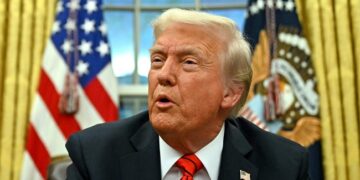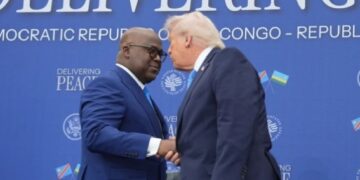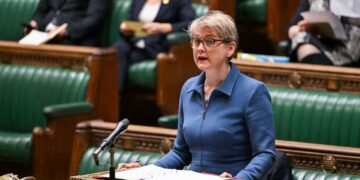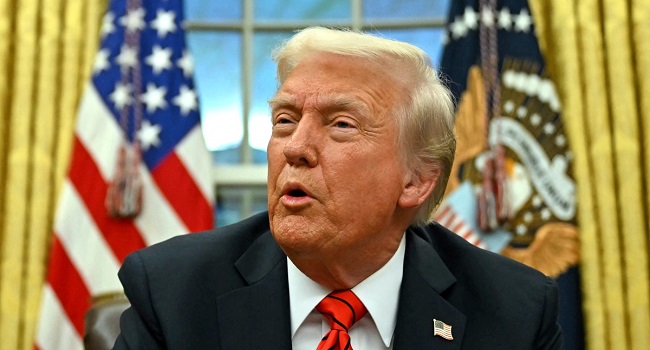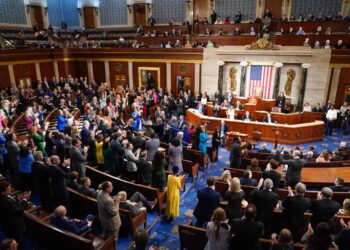By Ebi Kesiena
U.S. President Donald Trump has announced plans to introduce new visa restrictions targeting foreign nationals who are considered grossly overweight, citing concerns that such individuals could burden the American healthcare system.
President Trump disclosed this in a post on his social media platform, Truth Social, where he stated that the U.S. government would begin rejecting visa applications from individuals whose weight and related health conditions pose potential strain on the nation’s medical infrastructure.
“We will not ban all fat people from entering our Great Country, only those whose poor health will overburden our healthcare system,” Trump wrote.
According to him, the proposed measure would not apply to people who are only “slightly overweight,” but to those suffering from weight-related diseases such as cardiovascular and metabolic disorders.
“The bigger ones will need to trim down to get approved,” he added.
The US President also revealed that the restriction could soon extend to expatriates, noting that even those working abroad may be affected by the new rule.
“We will EXPAND this rule to cover expats in the near future. Rosie, you will never return to This Great Country,” he wrote, apparently referencing a longtime critic.
The move follows Trump’s announcement of his “fat shot” deal with two pharmaceutical companies aimed at lowering the cost of popular weight-loss medications, including Ozempic and Zepbound.
Citing the proposed directive, The New Republic, a U.S.-based media outlet, reported that a memo from the State Department to embassies and consulates worldwide instructed visa officers to evaluate applicants’ health as part of their eligibility.
“You must consider an applicant’s health. Certain medical conditions, including, but not limited to, cardiovascular diseases, respiratory diseases, cancers, diabetes, metabolic diseases, neurological diseases, and mental health conditions can require hundreds of thousands of dollars’ worth of care,” the memo reportedly stated.
It added that applicants who lack sufficient financial means to cover such medical expenses “without seeking public cash assistance or long-term institutionalization at government expense” could be denied visas.
The controversial announcement has already stirred global debate, with critics accusing Trump of promoting discrimination under the guise of healthcare policy.
Supporters, however, argue that the move is aimed at protecting America’s healthcare system from being overwhelmed by foreign nationals with chronic medical conditions.
